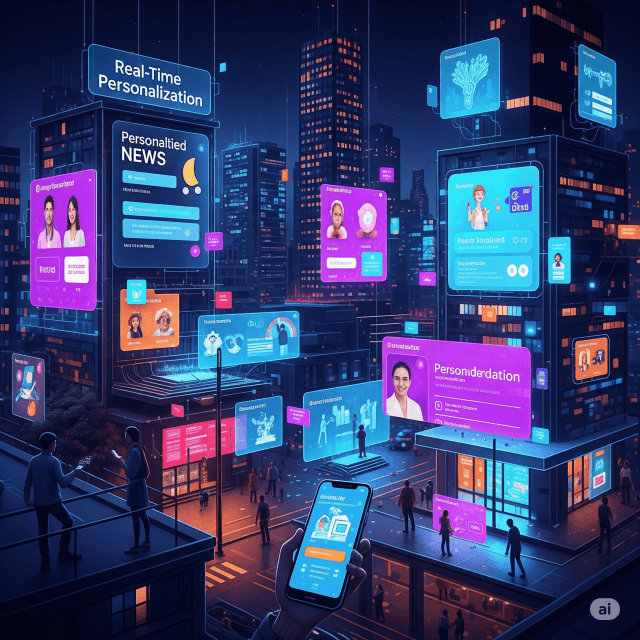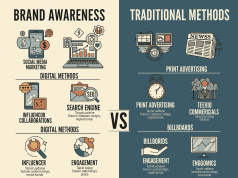In an age where consumer expectations are higher than ever, businesses are continually seeking innovative ways to enhance customer experience. One of the most effective strategies is real-time personalization, a marketing approach that tailors content and offerings to individual consumers based on their behaviors and preferences. Central to this strategy is marketing technology (Martech), which plays a pivotal role in transforming data into actionable insights.
Understanding Real-Time Personalization
Real-time personalization involves delivering customized experiences to consumers at the moment they interact with a brand. This personalization can occur across various touchpoints—social media, email, websites, and mobile applications. By leveraging real-time data, brands can create dynamic user experiences that resonate deeply with individual customers, ultimately driving engagement and loyalty.
Key Components of Real-Time Personalization
Data Collection and Analysis:
- The backbone of real-time personalization is data. Brands collect data from various sources, including user behavior on websites, social media interactions, purchase history, and demographic information.
- Advanced analytics tools help organizations process this data quickly, allowing marketers to identify trends and preferences that inform personalized strategies.
Marketing Automation:
- Marketing automation platforms (MAPs) enable brands to execute personalized communication seamlessly. These tools facilitate the crafting of targeted messages and offers based on user behavior in real time.
- By automating responses—such as sending an email to a customer who abandoned their shopping cart—businesses can nudge customers towards conversion effectively.
Customer Relationship Management (CRM):
- CRM systems store detailed customer profiles, allowing for deeper insights into individual preferences and behaviors.
- Integration of CRM with other Martech stacks enables comprehensive oversight of customer interactions, fueling more precise personalization efforts.
- Artificial Intelligence and Machine Learning:
- AI and machine learning algorithms analyze large datasets to predict customer behavior, enabling brands to deliver the right message at the right time.
- These technologies enhance the precision of targeting and personalization initiatives, making interactions more relevant and timely.
The Role of Martech in Implementing Real-Time Personalization
Enhancing Customer Insights:
- Martech tools help brands segment their audiences based on real-time data, creating actionable profiles that inform personalized strategies.
- With enhanced insights, organizations can tailor their marketing efforts to specific customer segments, rather than adopting a one-size-fits-all approach.
Multi-Channel Communication:
- The integration of various Martech tools ensures consistent messaging across different channels, providing consumers with a cohesive experience.
- Whether a customer engages through a mobile app, website, or social media, the ability to personalize interactions across channels significantly enhances consumer satisfaction.
- Measuring Effectiveness:
- Advanced analytics within Martech platforms enables brands to track the effectiveness of their personalization initiatives in real time.
- Metrics such as engagement rates, conversion rates, and customer feedback can be swiftly analyzed to refine strategies and improve future interactions.
Challenges and Considerations
Despite the clear advantages, implementing real-time personalization is not without challenges. Privacy concerns are paramount, as consumers are increasingly wary of how their data is being used. Brands must strike a careful balance between personalization and privacy, ensuring compliance with regulations such as GDPR.
Additionally, the integration of various Martech tools can be complex, requiring a sophisticated understanding of technology and data analytics. Companies must invest in training for their teams to leverage these tools effectively.
Conclusion
Real-time personalization, powered by innovative Martech solutions, is reshaping the consumer experience landscape. By leveraging data and technology, brands can create meaningful, tailored experiences that resonate with their customers. However, success hinges on a commitment to data ethics, flexibility in strategy, and continued investment in technology. As consumer expectations evolve, those who embrace real-time personalization will likely lead the way in creating deeper, more engaging customer relationships.









